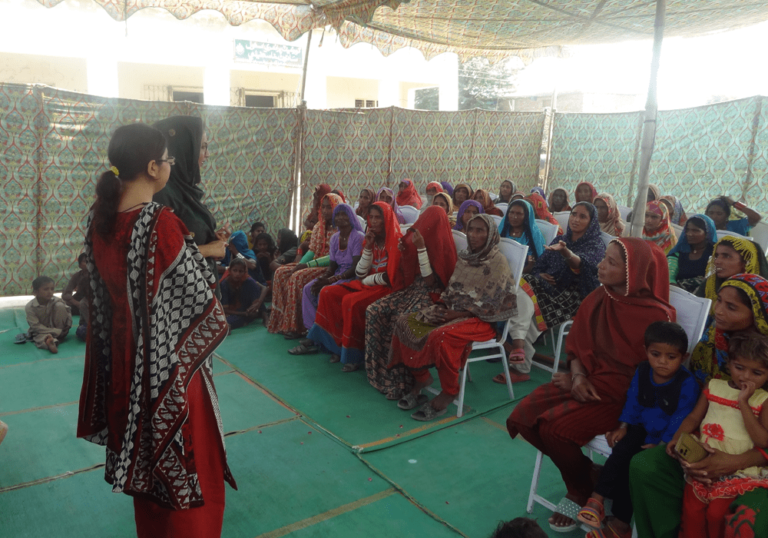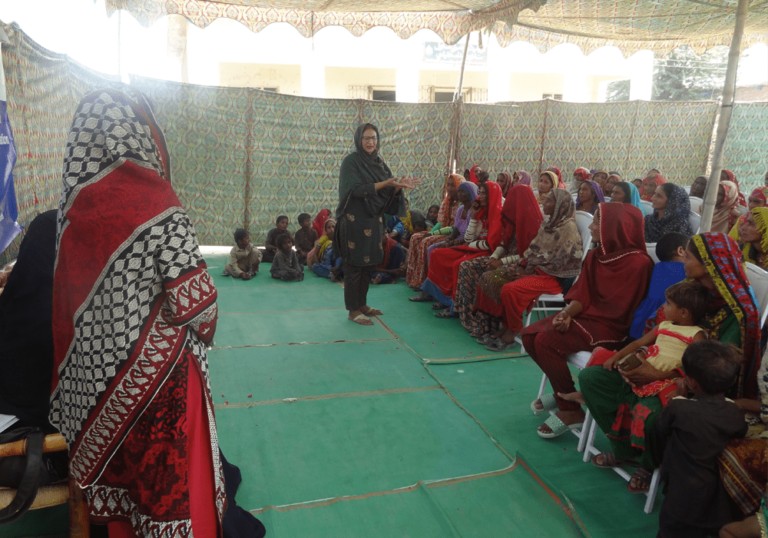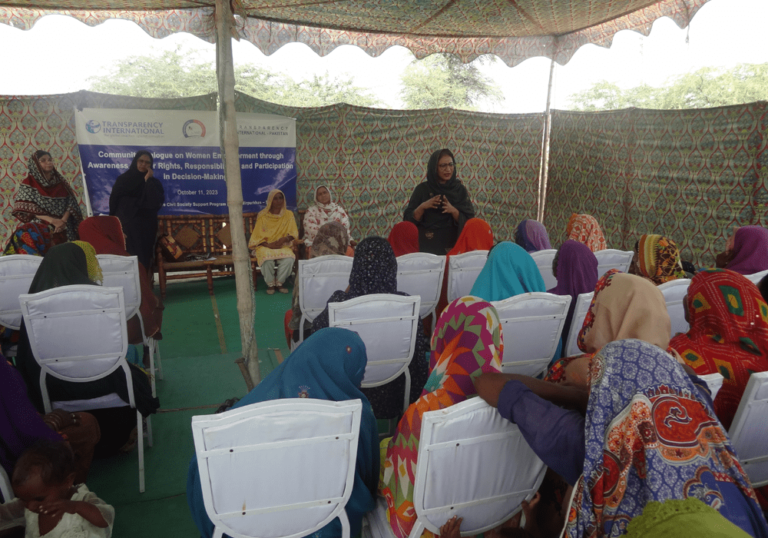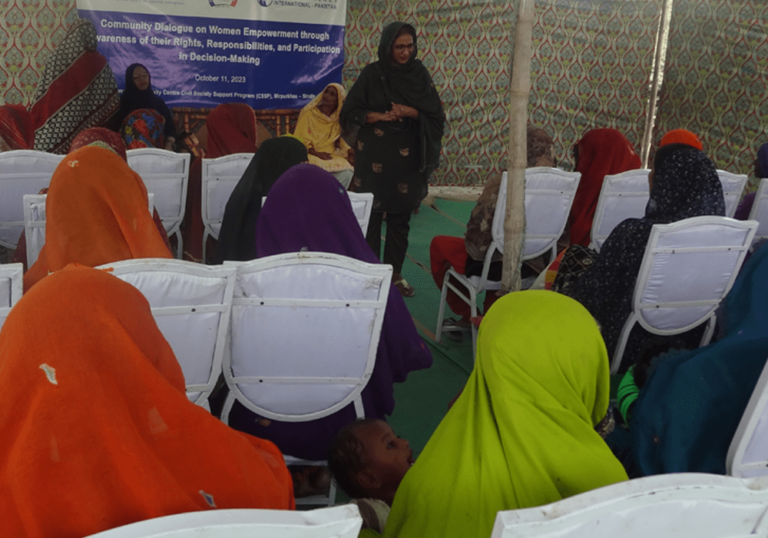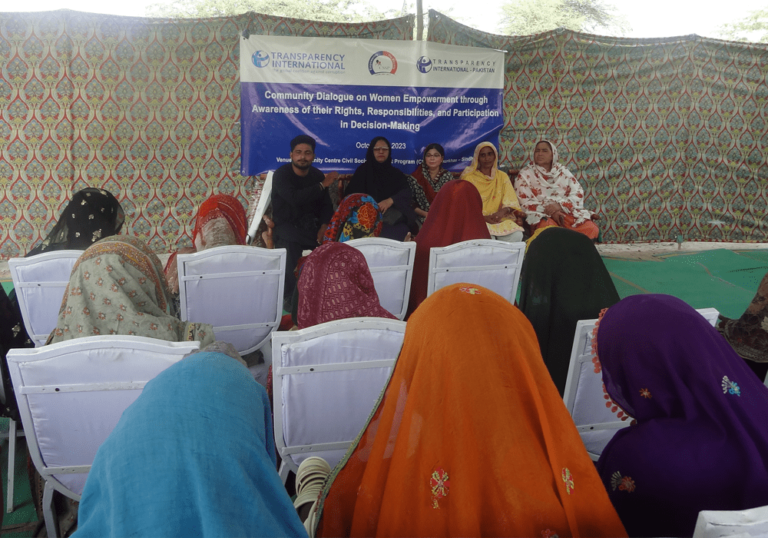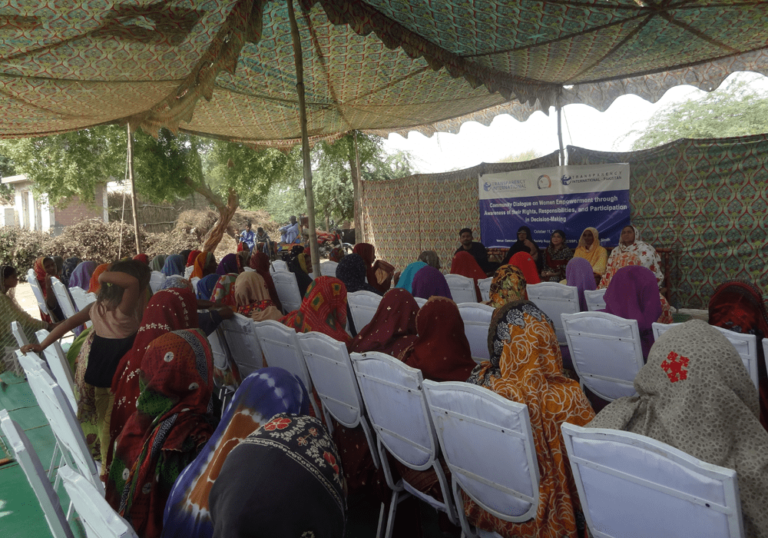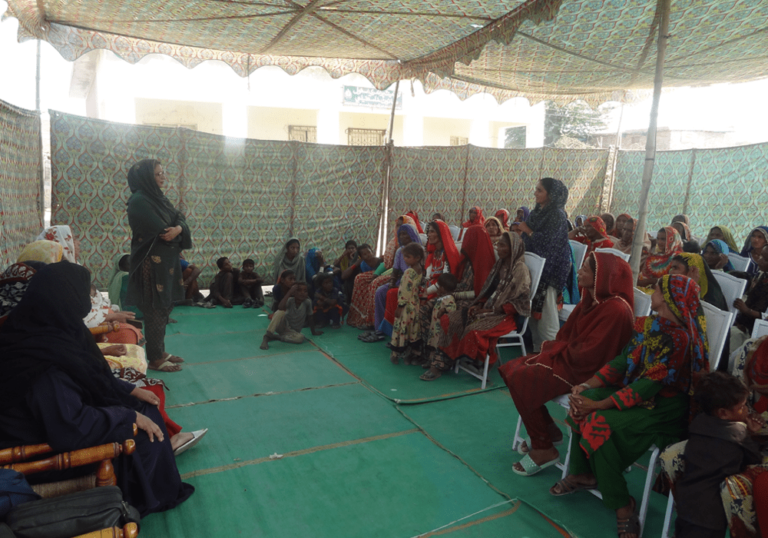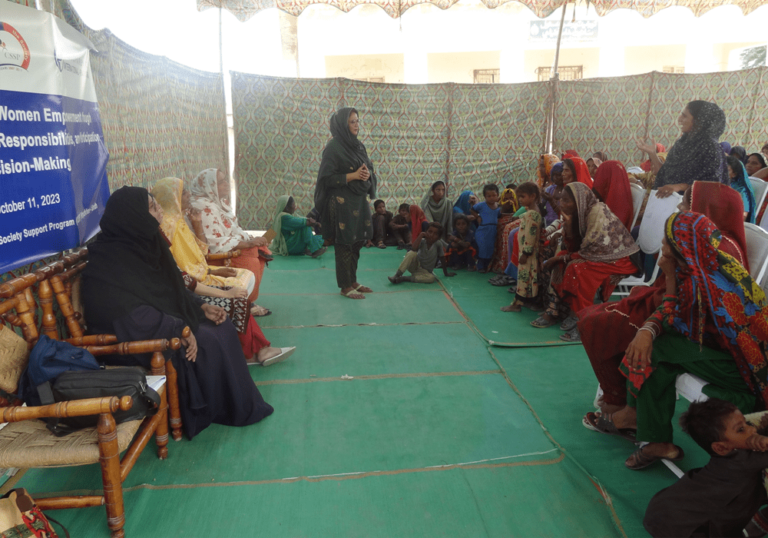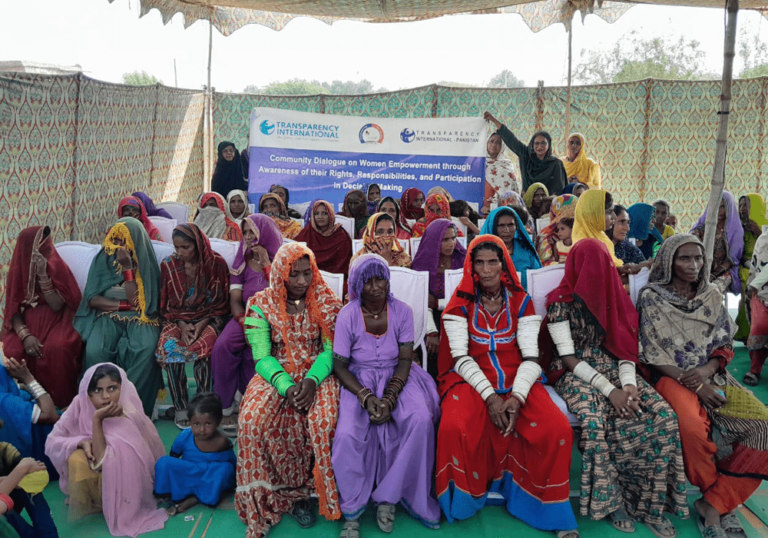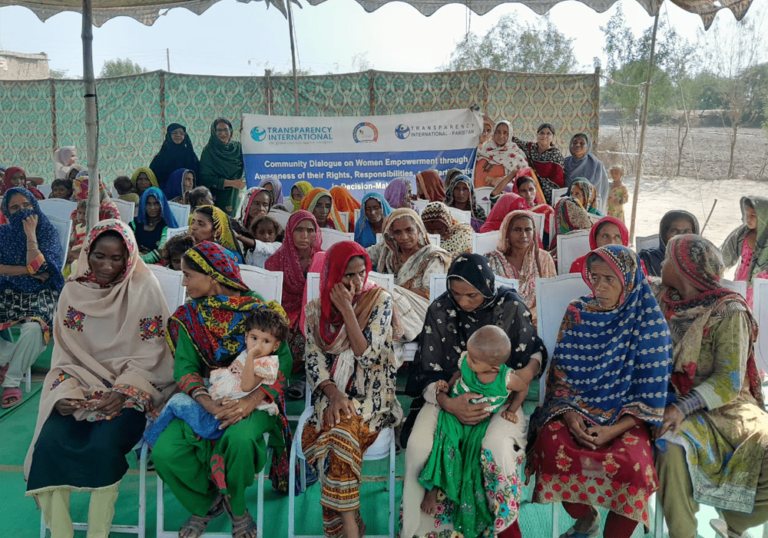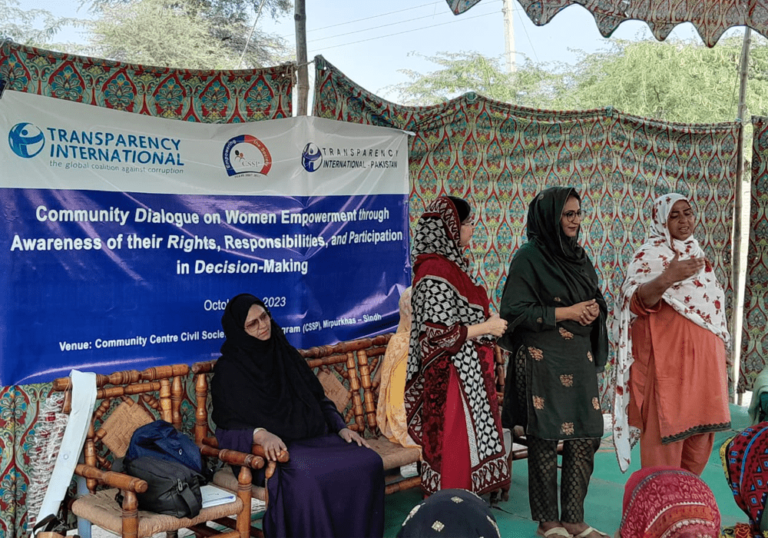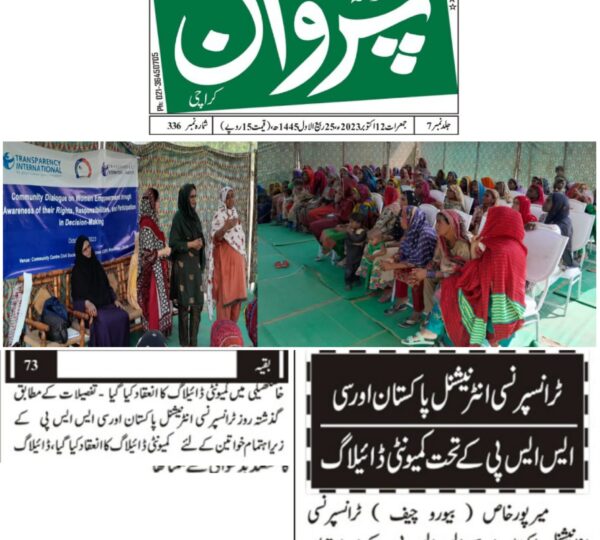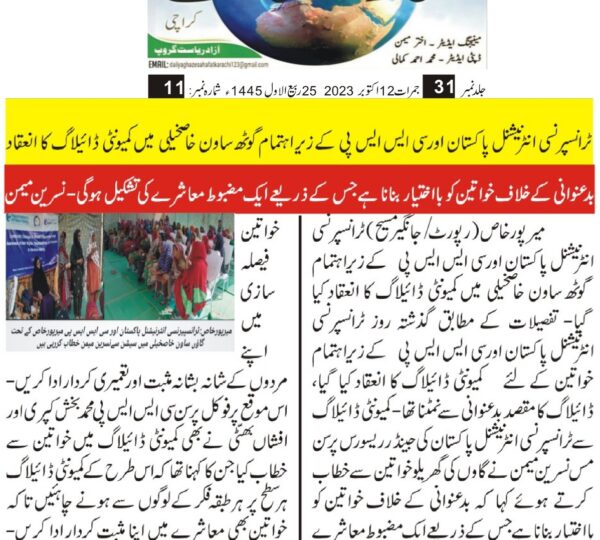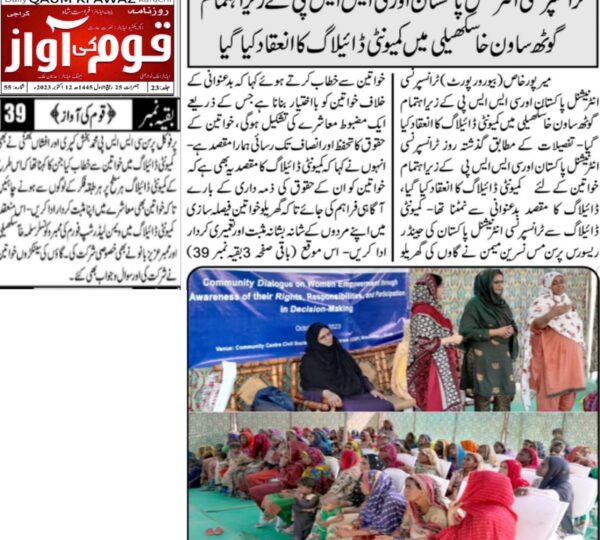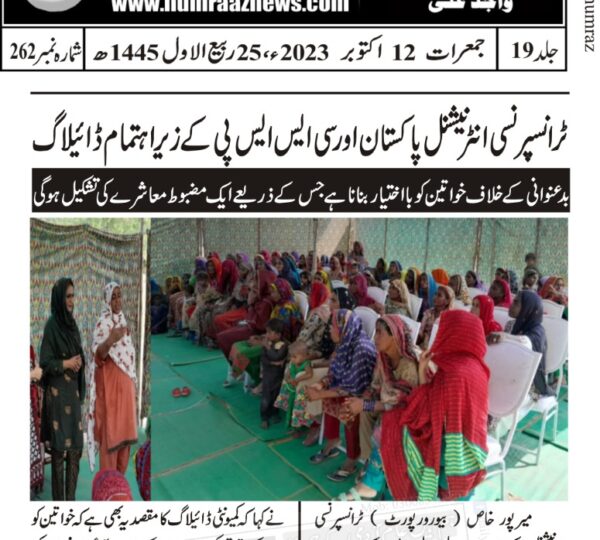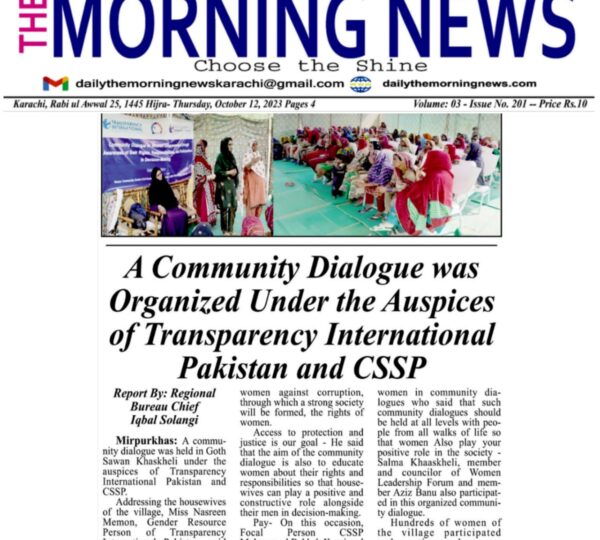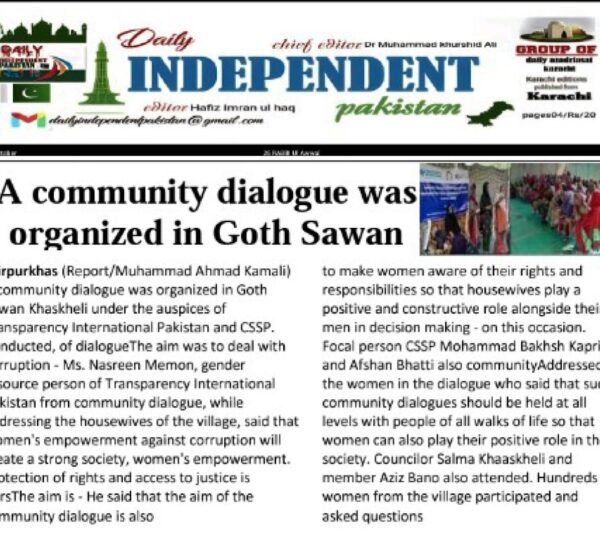- Home
- Community Dialogue on Women’s Empowerment through Awareness of Their Rights, Responsibilities, and Participation in Decision-Making
Community Dialogue on Women’s Empowerment through Awareness of Their Rights, Responsibilities, and Participation in Decision-Making
Title: Community Dialogue on Women’s Empowerment through Awareness of Their Rights, Responsibilities, and Participation in Decision-Making
Venue: Mirpurkhas, Sindh Province
Date: Wednesday, 11th October, 2023
Transparency International Pakistan, in collaboration with the Civil Society Support Program in Mirpurkhas, Sindh, hosted a Community Dialogue in Village Sanwan, District Mirpurkhas, Sindh on Wednesday, October 11, 2023. The primary objective of this community dialogue was to raise awareness about gender-related issues and disparities, women’s rights, and to encourage their active participation in political decision-making.
The event brought together an audience of 80 women from a diverse group of minority communities, trainers from the Women’s Vocational Center, and male members of the Village Committee. It commenced with the recitation of verses from the Holy Quran.
Ms. Nasreen Memon, the Gender Resource Person from Transparency International Pakistan, highlighted the profound impact of corruption on women. She elucidated how various unethical practices and behaviors create significant barriers for women, obstructing their access to full civic, social, and economic rights. The lack of awareness, coupled with prevailing social norms, beliefs, and customs, contributes to the challenging circumstances that women face in relation to corruption. Ms. Memon also provided a detailed explanation of various gender-specific forms of corruption and their disproportionate effects on women.
During the community dialogue, participants engaged in the exchange of information, shared personal stories, experiences, and viewpoints. The Gender Resource Person asked them about access to education for girls, especially.
Ms. Ruqia Khaskhali, leader of the community committee, shared that in their village, there is only one primary co-education school with a single male teacher. Due to this, girls cannot access education once they reach the age of 12.
Ms. Nasreen explained that when girls are deprived of access to education after the age of 12, it perpetuates a cycle of gender inequality and limits their potential for personal and societal growth. Education is a fundamental human right, and depriving girls of this opportunity not only stifles their intellectual development but also hinders their economic prospects and overall well-being.
Ms. Salma emphasized that these types of restrictions often lead to early marriages, increased vulnerability to poverty, and limited decision-making power in the lives of young girls. Access to education for girls is not only a matter of justice and equality but also a critical investment in a brighter future for all.
Ms. Radha, who belongs to a minority community, shared that in their community, early marriage is common. This practice often deprives girls of their childhood and fundamental rights, leading to various adverse effects, such as health problems, limited access to education, and restricted economic opportunities. Girls who marry early often face higher risks of complications during childbirth, and their children may also suffer from health and developmental issues.
Ms. Nasreen further explained that early marriage perpetuates a cycle of poverty and gender inequality, as it tends to reinforce traditional gender roles and hinder women’s participation in the workforce and decision-making processes. Efforts to address this issue involve raising awareness, enacting and enforcing laws against child marriage, and promoting girls’ access to education and opportunities.
Ms. Nooran, a community leader, also expressed her concerns about the future generation, particularly girls, and their access to education in the area. She highlighted that it continues to be a significant challenge due to the lack of adequate infrastructure, clean water, and transportation. This shortage of resources makes it difficult for children, especially girls, to attend schools in Mirpurkhas City and receive a quality education.
Ms. Nasreen emphasized that it is the responsibility of elected political figures to address this challenge by allocating resources for infrastructure development, healthcare, education, and basic amenities. They should push the government to take initiatives that improve rural infrastructure and access to essential services. In this situation, the community should carefully consider to whom they give their vote, selecting the best political leader who will work for the betterment of the village.
Mr. Muhd Bux Kapri, Project Coordinator of the Civil Society Support Program (CSSP) Organization, explained the electoral process, voter registration, accessing voter lists, and lodging complaints, emphasizing the importance of informed voting decisions.
In the end, Ms. Nasreen provided a detailed briefing about TI Pakistan Legal Advice Centre (ALAC) and the free legal advice it offers to citizens and communities seeking redress for their grievances. Participants were also encouraged to use TI Pakistan ALAC to obtain legal advice for their problems.
In conclusion, community women and partner organizations expressed their gratitude to TI Pakistan for organizing this insightful dialogue.



